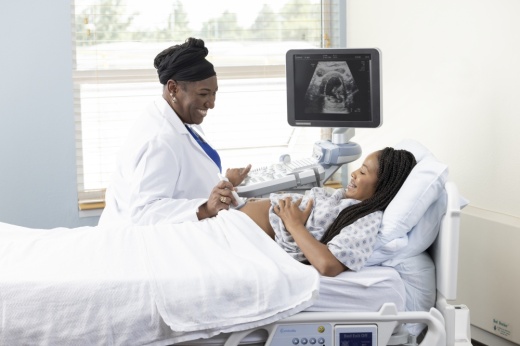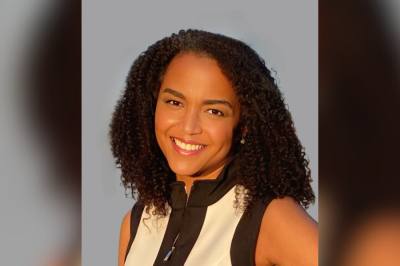From screening for common conditions that affect women to advanced medical and surgical care, the healthcare providers at Baylor Scott & White Health offer comprehensive services women need.
Baylor Scott & White’s women’s health service categories include:
- Breast imaging
- Gynecology
- Heart care
- Labor and delivery
- Menopause
- Pelvic health
- Osteoporosis
Dr. Tracey Banks, an Obstetrician and Gynecologist on the medical staff at BSW McKinney, specializes in hysterectomies and uterine fibroids. She shared some of her insight about the causes, treatments and FAQs regarding these topics.
What should patients getting a hysterectomy expect?
“It’s not your mama’s hysterectomy anymore,” Banks said. “20 years ago, a hysterectomy involved big incisions. Women were in the hospital for three to five days, in pain and needed a recovery time of six weeks off work.”
BSW McKinney offers laparoscopic hysterectomies, which utilize thin tubes attached to a camera. Instead of a large incision across the abdomen, these tubes are placed in four small abdomen incisions no wider than a finger.
With this new hysterectomy method, women usually experience less pain, a quicker recovery and only lose about a teaspoon of blood. Additionally, women have many other options today—such as medicines to help with severe bleeding, procedures to help shrink fibroids and other minimally invasive procedures—before a hysterectomy is necessary.
What are uterine fibroids?
While not everything is known about these benign growths, there are a few things for patients to note.
Fibroids are defined as one muscle cell that tends to grow. The fibroids can get as big as a basketball. If the fibroids start to impede on the cavity of the uterus, they can cause abnormal bleeding.
The most common problem with fibroids is abnormal uterine bleeding, such as heavy periods for an extended timeframe. Other symptoms are pain, including pain during sex. Another sign is pressure, such as feeling a large, hard mass in the abdomen, which can make women look as though they are pregnant.
What is the difference between fibroids and cancer?
The difference between fibroids and cancer is that fibroids are always benign. As fibroids grow, they push things out of the way, whereas cancer invades.
80% of women of color have uterine fibroids, but often, women can be asymptomatic. Small, asymptomatic fibroids don’t require treatment.
What causes fibroids?
Banks said it’s not clear what causes fibroids, but medical experts do know they are filled with estrogen.
“When women are pregnant and they have fibroids, those tend to grow as well,” she said. “The good news is as those estrogen levels go down, they tend to shrink.”
Fibroids can happen in women who are estrogen-dominant, or women who are exposed to a lot of estrogen.
“Even if patients don’t take estrogen, there are things in the environment that mimic estrogen, such as pesticides put on food crops,” she said. “I always tell people that have problems with fibroids to eat clean and organically because pesticides, soy and non-organic meats can mimic estrogen in the body and bind to the receptors, causing fibroids to grow.”
Why is it important to schedule a yearly women’s health exam?
For women who may be dodging their gynecologist calls to avoid a pap smear, here’s some good news: pap smears are now recommended every three to five years, instead of annually.
Banks said women should continue to make an effort to attend their yearly gynecologist appointments because providers are checking other vital signs of physical wellness.
“As providers, we’re doing preventative medicine at these yearly exams,” she said. “In addition to taking care of patients’ reproductive health, we screen for whole body wellness. During the visit, women can discuss stress management, nutrition and weight in addition to gynecological health.”
How to prepare for your next well women’s visit:
- Take time to think about the visit before your appointment date.
- Write down questions and concerns so providers can tailor the exam to your issues.
- Make a list of any medications and their dosages you are taking.
Visit the website here for more information about the Baylor Scott & White Medical Center - McKinney location. Learn more about the hospital’s women’s health services here. Looking for a location near you? The healthcare system includes 51 hospitals, more than 800 patient care sites and more than 7,300 active physicians. Find care near you.
Physicians provide clinical services as members of the medical staff at one of Baylor Scott & White Health’s subsidiary, community or affiliated medical centers and do not provide clinical services as employees or agents of Baylor Scott & White Health or those medical centers.
The above story was produced by Summer El-Shahawy with Community Impact's Storytelling team with information solely provided by the local business as part of their "sponsored content" purchase through our advertising team.







